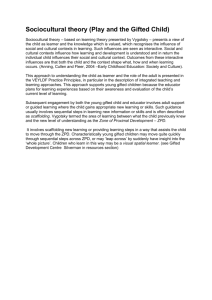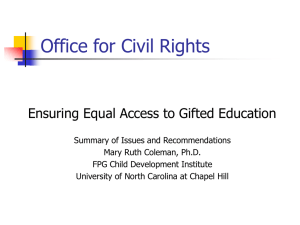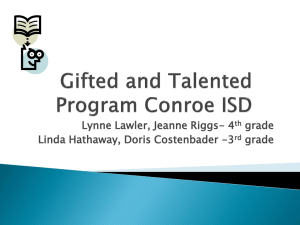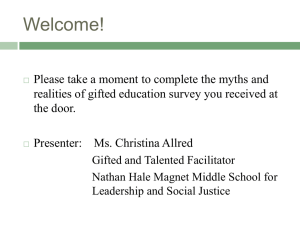Supporting gifted children`s play
advertisement
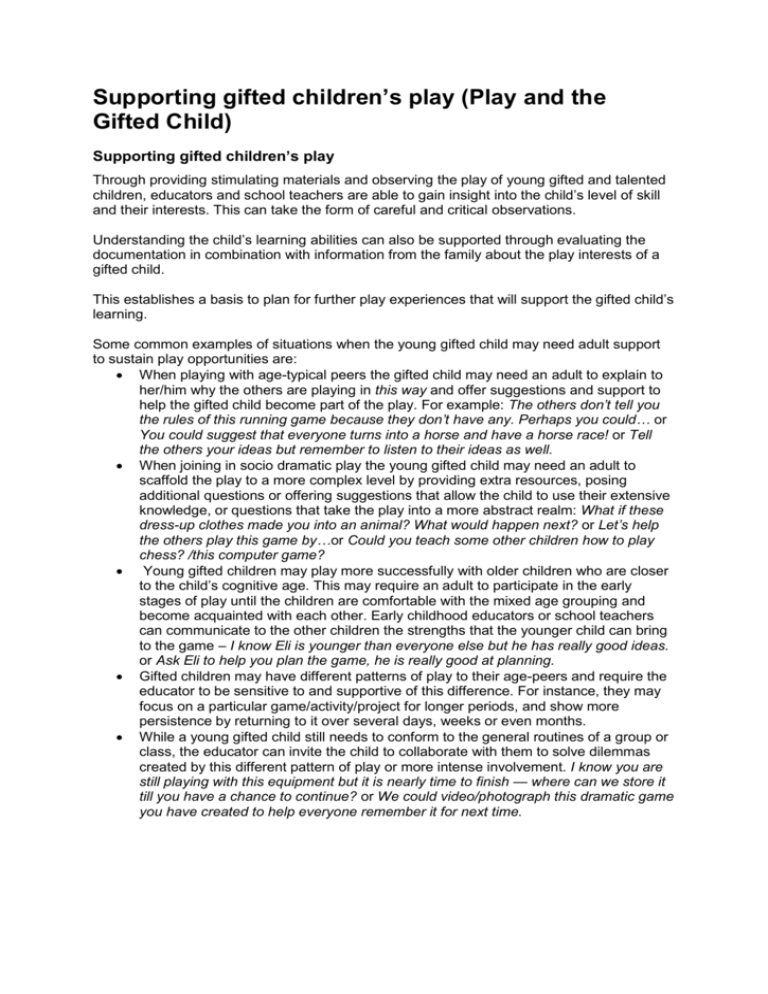
Supporting gifted children’s play (Play and the Gifted Child) Supporting gifted children’s play Through providing stimulating materials and observing the play of young gifted and talented children, educators and school teachers are able to gain insight into the child’s level of skill and their interests. This can take the form of careful and critical observations. Understanding the child’s learning abilities can also be supported through evaluating the documentation in combination with information from the family about the play interests of a gifted child. This establishes a basis to plan for further play experiences that will support the gifted child’s learning. Some common examples of situations when the young gifted child may need adult support to sustain play opportunities are: When playing with age-typical peers the gifted child may need an adult to explain to her/him why the others are playing in this way and offer suggestions and support to help the gifted child become part of the play. For example: The others don’t tell you the rules of this running game because they don’t have any. Perhaps you could… or You could suggest that everyone turns into a horse and have a horse race! or Tell the others your ideas but remember to listen to their ideas as well. When joining in socio dramatic play the young gifted child may need an adult to scaffold the play to a more complex level by providing extra resources, posing additional questions or offering suggestions that allow the child to use their extensive knowledge, or questions that take the play into a more abstract realm: What if these dress-up clothes made you into an animal? What would happen next? or Let’s help the others play this game by…or Could you teach some other children how to play chess? /this computer game? Young gifted children may play more successfully with older children who are closer to the child’s cognitive age. This may require an adult to participate in the early stages of play until the children are comfortable with the mixed age grouping and become acquainted with each other. Early childhood educators or school teachers can communicate to the other children the strengths that the younger child can bring to the game – I know Eli is younger than everyone else but he has really good ideas. or Ask Eli to help you plan the game, he is really good at planning. Gifted children may have different patterns of play to their age-peers and require the educator to be sensitive to and supportive of this difference. For instance, they may focus on a particular game/activity/project for longer periods, and show more persistence by returning to it over several days, weeks or even months. While a young gifted child still needs to conform to the general routines of a group or class, the educator can invite the child to collaborate with them to solve dilemmas created by this different pattern of play or more intense involvement. I know you are still playing with this equipment but it is nearly time to finish — where can we store it till you have a chance to continue? or We could video/photograph this dramatic game you have created to help everyone remember it for next time.
